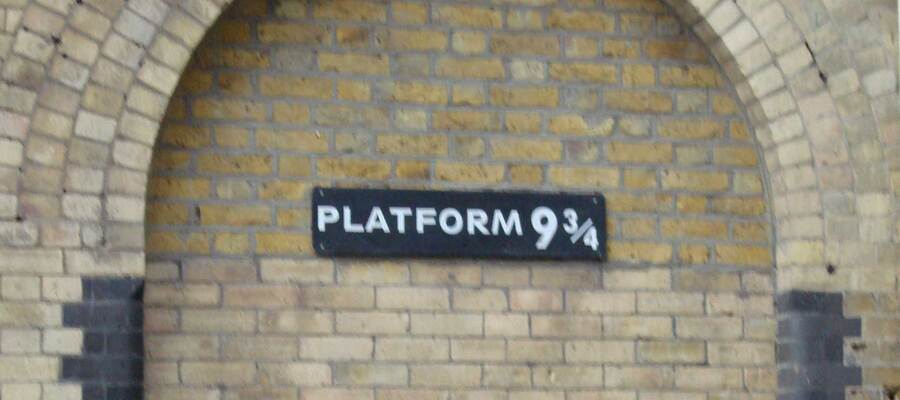
Why I refer to non-anxious people as muggles
If you have read J. K. Rowling's best-selling book series Harry Potter, you will be familiar with the term "muggle". This refers to non-magical folk. The everyday people, like you and I.
When you read my books about anxiety, you will notice that I also use the term muggle to refer to people who are not struggling with anxiety.
This is not a coincidence: I borrowed the word from Rowling's excellent books because I think it is also a very apt one here. If you have ever wondered why I will reveal all below.
Why do we need a term?
I have spent a lot of time running group sessions at my charity Anxiety Leeds. This is a support group for anyone struggling with issues surrounding anxiety and panic.
At the group, we often need to talk about the difference between those of us struggling with anxiety, and people who are not.
The first term a lot of people would go for would be to refer to non-anxious people as "normal" people. This is not a suitable term. First, it implies that anyone with high levels of anxiety is abnormal. The statistics do not bear this out: 1 in 3 people will struggle with anxiety or depression.
Second, abnormal is considered a derogatory label.
Third, it suggests that experiencing anxiety is an aberration. This is not the case. Everyone has some level of anxiety: it is a natural and normal human emotion. Some of us have higher levels than others, but everyone has it.
Therefore, we need to find a different term to use. In the field of psychology, the terms typical and atypical are in vague. These words do not have the stigma that abnormal does and are more representative of the situation.
However, I think that, inside anxiety circles, we can do better.
What is a muggle
Let's look back at the Harry Potter universe.
There are magic folk (witches and wizards in HP terminology) and non-magic folk, referred to as muggles. These two groups are essentially the same: magic folk are regular humans that eat, and go to the toilet, and bleed. However, there are two important differences.
First, magic folk have extra stuff to handle. In this case, magic. Used incorrectly, as Tom Riddle did, this magic can destroy your soul and cause great harm to you, and the world around you. Used correctly, it can be beneficial.
Second, magic folk see the world differently. Yes, they see all of the regular stuff that muggles see. However, they also see a whole different world, on top of the regular world, where all sorts of things are happening.
How does this apply to anxiety?
The difference between anxious folk and non-anxious folk is slim. However, there are two important differences:
First, anxious people have this whole layer of extra stuff to deal with. In this case, an excess of anxiety. Typically, this does a great deal of harm to ourselves. However, channelled constructively, it can also be beneficial too (I talk about the benefits in my book Technical Anxiety).
Second, anxious people see the same world non-anxious folk do, but in a different light. We sent to see if from a negative bias. However, we also see the battleground before us. We see the other people struggling with anxiety. We are far more likely to recognise social anxiety in others, or someone having a panic attack for example.
The battlefield is always there: it is the same world in which the non-anxious folk live. However, most people just tune it out in the same way that non-magic folk in Harry Potter tune out the Night Bus racing around London.
Can you spot the connection?
In Harry Potter, magic folk and muggles live in the same world. However, the muggles live their lives unaware of the power of magic and the world that existing in parallel with their own, taking place in plain sight.
In our world, anxious people and non-anxious people inhabit the same environment, too. However, anxious people see the effect that anxiety can have. It is a whole different world that is going on in plain sight.
Therefore, for me, the term muggle makes an excellent comparison between the non-magic folk of Harry Potter and the non-anxious folk of the real world. Perhaps, in this instance, many of us would prefer to be muggles, though!
Metadata
Published 16 April 2018. Written by Chris Worfolk.
References
Photograph by Oxyman, from Wiki Commons.